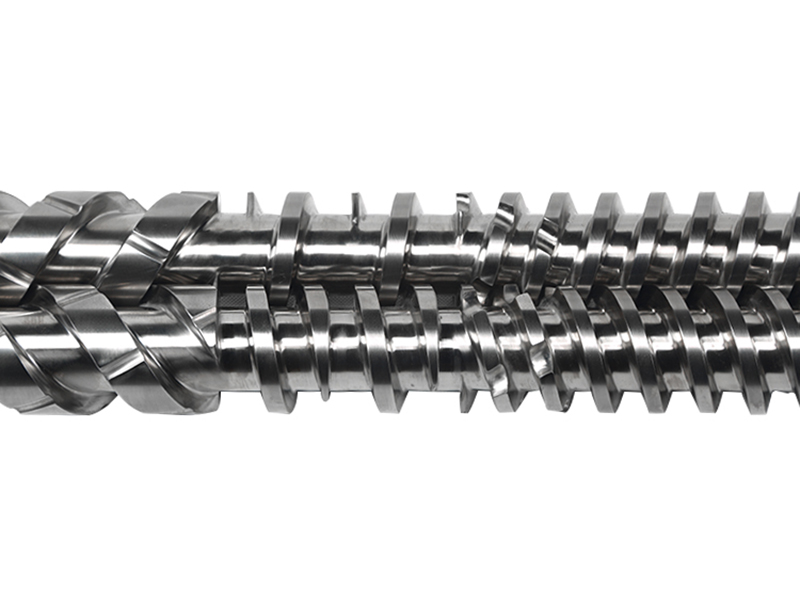

Flame hardened surface or high frequency brittle hard S […]
Flame hardened surface or high frequency brittle hard
Surface hardening is a convenient processing method for cheap noodles. The hardness after quenching can reach about HRC55, and the quenching depth can reach 2–3mm. When flame hardening is used, the screw material can be 40Cr or 45 steel, so it is very economical for large screws. The surface hardening can be carried out by heating the screw to 815°C with acetylene, propane, nitrogen, water gas, etc. as fuel. If high-frequency quenching is used, the quenching frequency should be greater than 4000 Hz and then water bath or spray hardening.
Surface surfacing
Surfacing welding on the alloy screw can be carried out by arc welding, plasma welding and other methods. The alloy for surfacing can be cobalt-based alloy rod (CoCrWMo alloy, such as Reiloyp48 alloy) or nickel alloy electrode. The hardness of the former can reach HRC36-54, and the latter can reach HRC52-58. When higher hardness is required, tungsten carbide can also be directly surfacing. This process can be used to repair worn screws. According to our country's experience, the surfacing welding can reach about 3mm, and the repair cost is 35% 70% of the new screw.
Surface spray
This is a method currently being vigorously researched. The alloy screw material can be made of nitrided steel, and then a layer of 0.5-0.8mm special alloy material is sprayed on the surface of the screw edge or even on the entire screw. In order to further improve the wear resistance, tungsten carbide can also be added to the material.
In order to increase the adhesion between the alloy material and the screw matrix, the screw is sandblasted with Al2O3 before spraying. The dispersed alloy powder is completely melted or surface melted during spraying, and sprayed to the screw in an oxygen-acetylene flame at 1750°C surface. When using boron-containing materials, since the melting point is only 1050-1070°C, it can be further sintered after spraying. Such a screw can withstand important loads. When the sintering process after spraying is used, the screw parent material cannot be chromium steel that has a tendency to cold harden by cold air, because this kind of steel is likely to cause cracks in the nominal sprayed alloy during the cooling process.
https://www.cjscrewbarrel.com/
